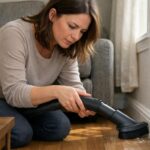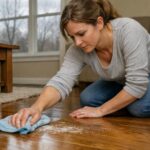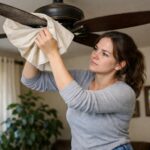Messy rooms can make life feel heavier than it should. Many homeowners and parents wrestle with laundry piles, paper clutter, and that sneaky stack of dishes on the kitchen counter. A smudged bathroom mirror or an unmade bed can tilt the whole day off balance.
Research links recurring cleaning to fewer allergies and less stress at home. Cleaner bedrooms also support better sleep because dust and dander do not sit close to the face all night.
This article shares practical steps anyone can use: good housekeeping habits, kitchen organization tactics, and smart bedroom cleaning routines.
Ready for less mess and more calm? Keep reading.
Key Takeaways
- Consistent cleaning cuts indoor pollutants, with EPA research showing large reductions in common irritants found inside homes.
- Weekly vacuuming with a HEPA filter removes dust mites that drive about 20% of family allergies, which can reduce symptoms in kids.
- Studies in the Journal of Environmental Psychology link tidy homes with lower anxiety and better sleep quality for families.
- Recycling during big cleanouts kept more than 193 million metric tons of carbon dioxide out of the air in 2018.
- Choosing green cleaners with EPA Safer Choice labels lowers health risks from harsh chemicals and supports less household waste.
Why Cleaning Your Home Regularly is Important
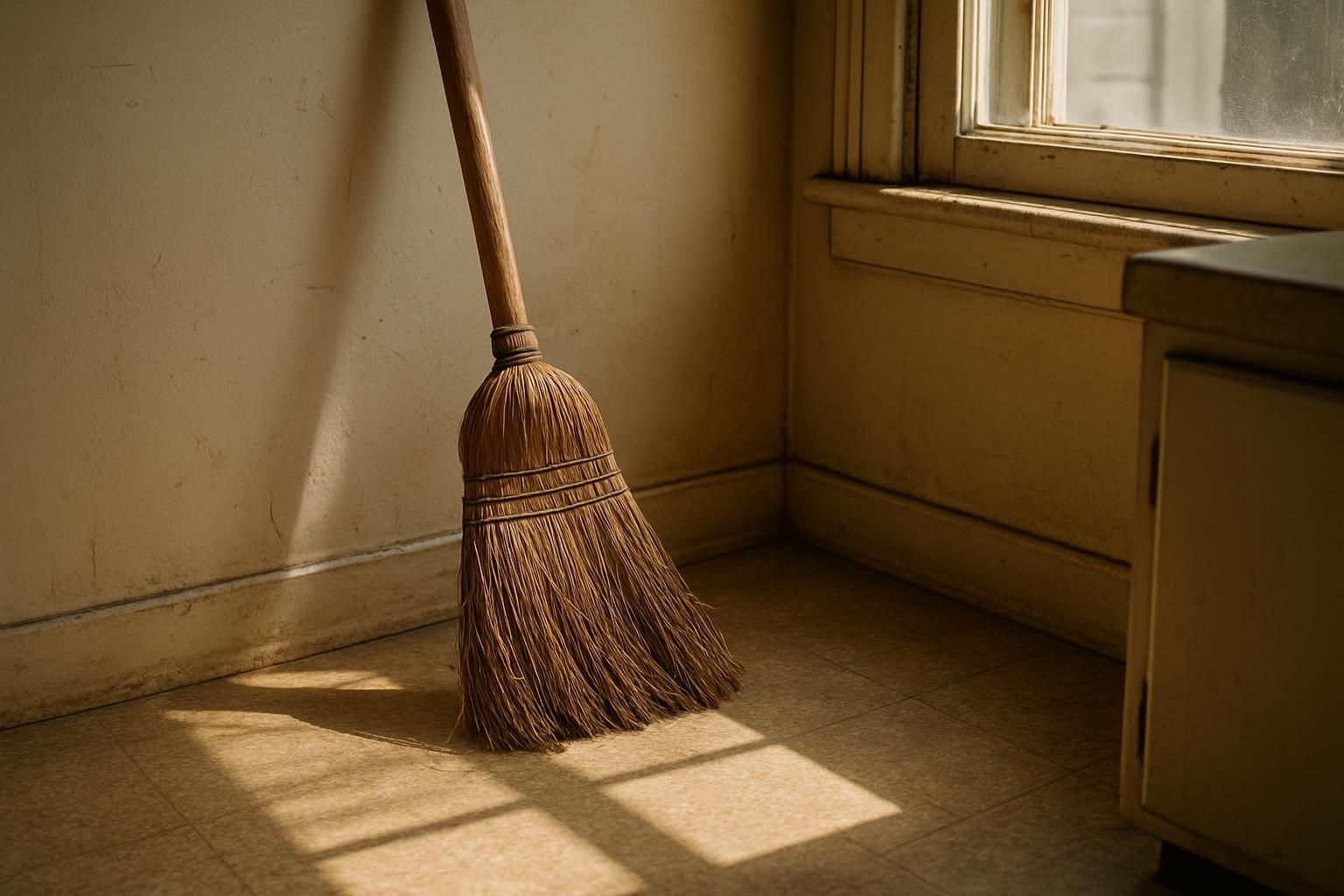
Think of a clean home as a daily shield that blocks dust, dirt, and germs from settling in. A simple cleaning schedule keeps kitchen counters, bathroom mirrors, and floors safer for kids and guests. Small habits, repeated each day, stack up into a healthier, calmer household.
This video shows how a consistent cleaning schedule supports home organization through clear steps in kitchen cleaning and mirror cleaning.
Promotes a Healthy Environment
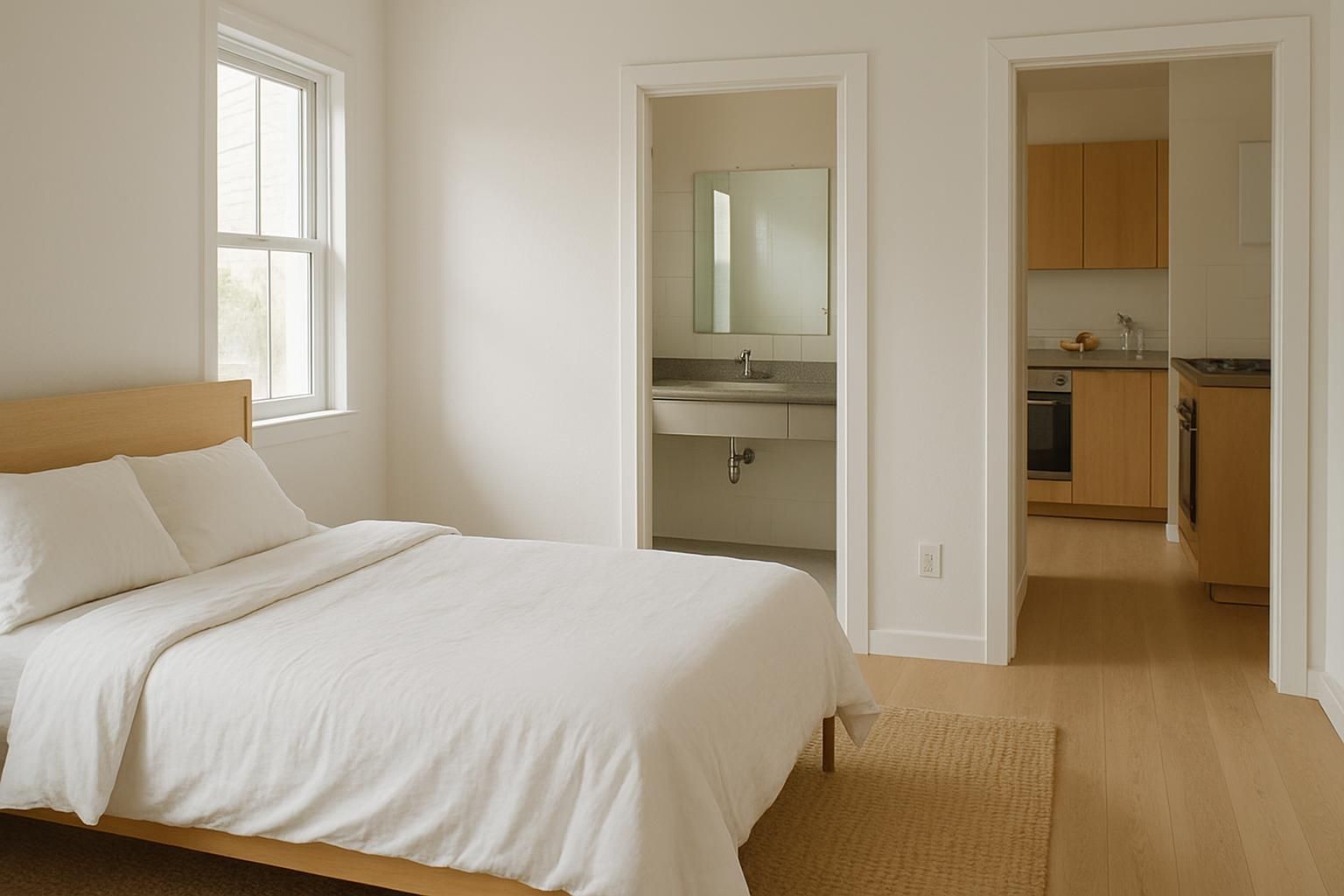
Dust and pet dander hide under beds and on shiny bathroom mirrors. These tiny particles can flare up asthma faster than a weekend cold moves through a classroom. Mold and mildew also take root in damp corners and forgotten laundry piles.
Daily actions help: wipe kitchen counters, run a quick vacuum, and make the bed. Toss expired toiletries and clear out cluttered shelves to cut down moisture and mold risk. Simple home organization makes it harder for pests to find food or shelter.
Reduces Allergens and Germs
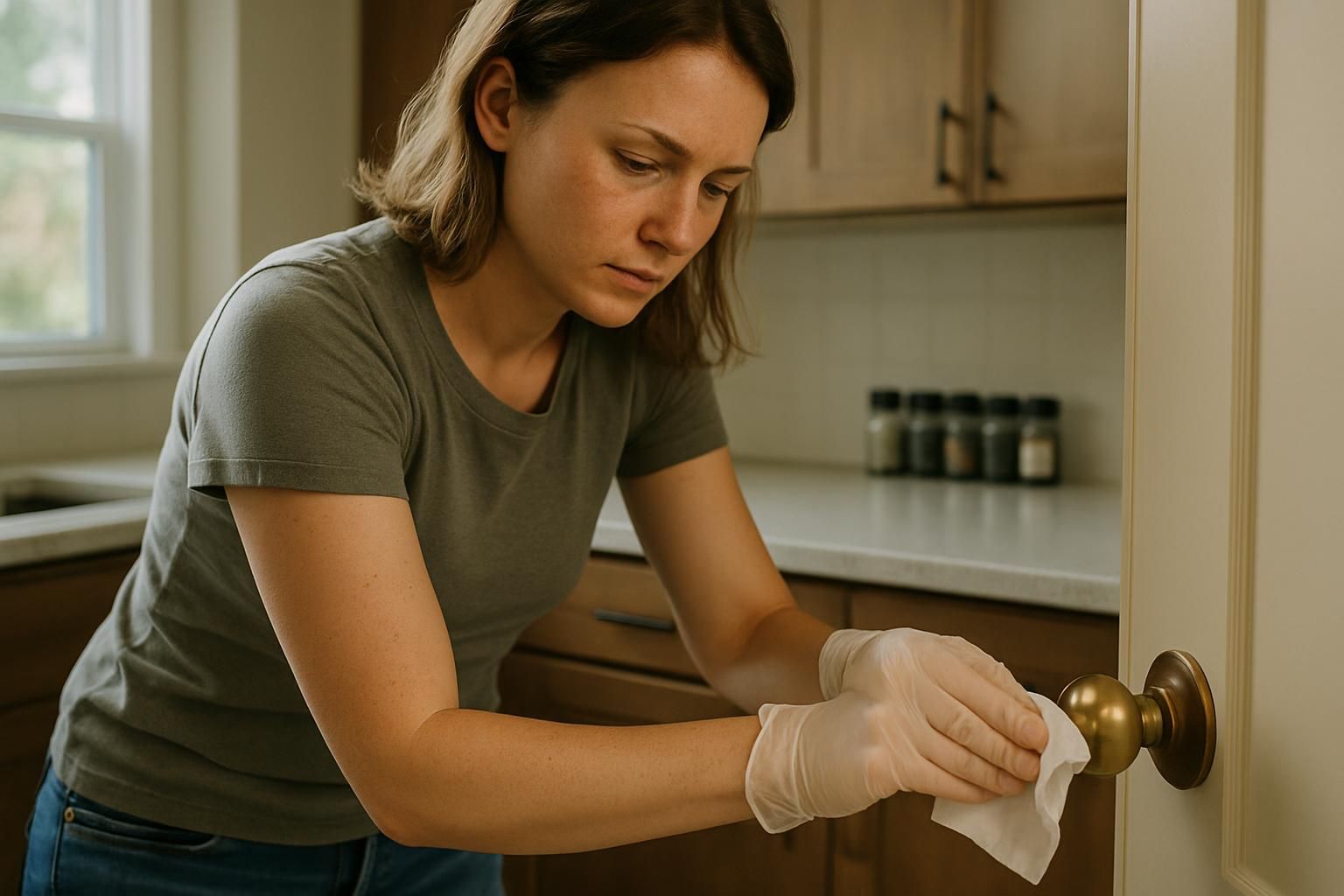
Regular cleaning does more than improve the look of a room, it clears out allergens and germs that trigger sniffles and wheezing. Dust, pollen, mold spores, and pet hair build up on carpets, counters, and cluttered corners.
Weekly vacuuming, ideally with carpet shampooers every so often, pulls up dust mites. Those mites are behind many family allergies. Wiping shelves and setting a cleaning schedule can shrink symptoms by a large margin. Scrub high-touch spots like doorknobs and switches.
Safe kitchen cleaning limits food borne threats such as Salmonella or E. coli that lurk on appliances and sink areas. A simple mirror cleaning routine in the bathroom helps stop mildew from spreading in damp air.
Enhances Mental Clarity and Reduces Stress
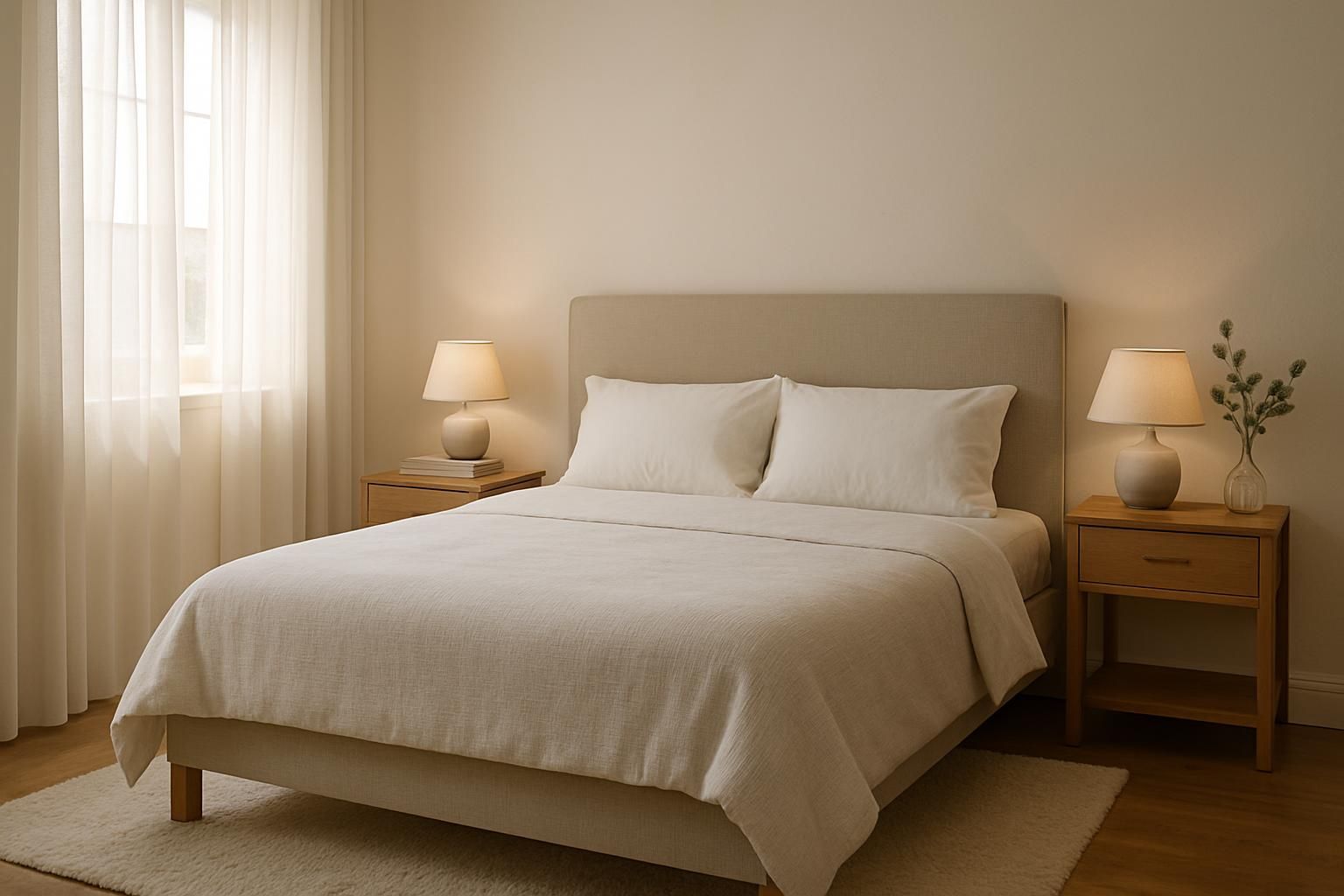
Researchers in the Journal of Environmental Psychology found that cluttered rooms can raise anxiety. Parents often feel drained just seeing stacks of paper or messy bedroom corners. A steady cleaning routine clears dust and mental fog at the same time.
Small wins help: toss junk mail, clean the bathroom mirror, and pull up a made bed. Organized spaces signal the brain to relax. People in cleaner homes tend to sleep better and handle stress more easily. A tidy kitchen counter is great for cooking, and it frees the mind for calm thinking too.
Physical Health Benefits of Regular Cleaning

Clean surfaces and floors support better breathing and fewer sick days. Dusting bedroom furniture, wiping kitchen counters, and scrubbing bathroom mirrors all play a role. A few focused minutes each day can protect the whole week.
This video explains how proper cleaning can lead to improved air quality and a healthier home environment.
Improved Air Quality
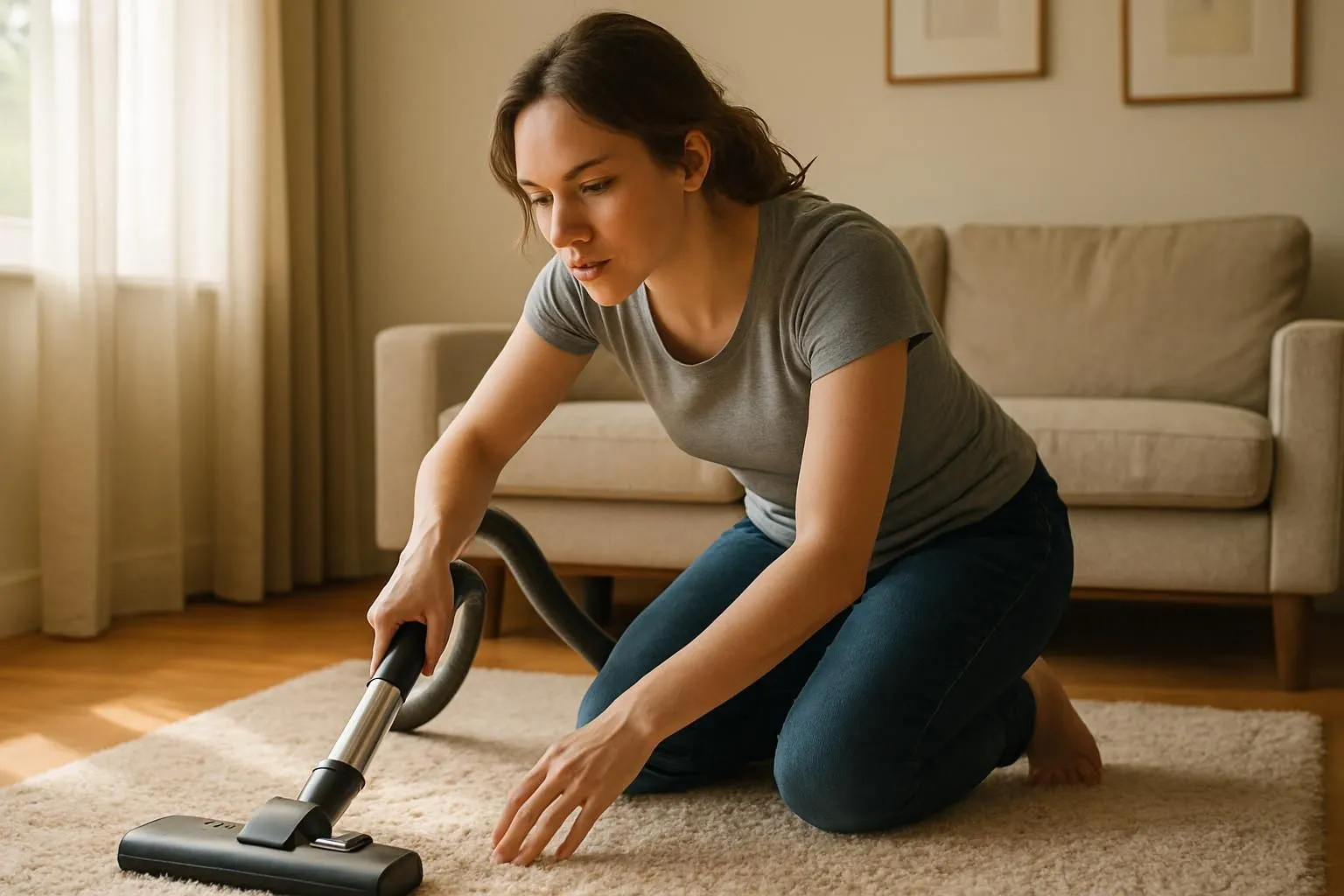
Dust, pollen, and tiny mites love quiet corners and glass surfaces. EPA studies show that routine cleaning can cut indoor pollutants by a big share, sometimes up to 70% with consistent effort. Weekly vacuuming with a HEPA filter grabs common triggers before they float back into the room.
Hit hard-to-reach spots where dust mites hide. These tiny bugs cause about one in five allergies in U.S. households. Sticking to a simple cleaning schedule often reduces sneezes and coughs in dust-sensitive kids. Cleaner air means easier breathing and sets the stage for fewer illnesses.
Reduced Risk of Illness and Infections
Germs ride on high-touch spots like doorknobs, faucet handles, light switches, and bathroom mirrors. Wiping them breaks the chain of spread. In the kitchen, careful cleaning limits bacteria that cause food-borne illness, including Salmonella and E. coli.
Keep prep areas clear and follow safe food steps. Disinfect after anyone in the home has been sick or if a family member has a weak immune system. Control moisture to discourage mold, especially in bathrooms.
For safety, read product labels, wear gloves if needed, and ventilate rooms while using chemicals.
Mental and Emotional Benefits of a Clean Home

Clutter is visual noise. Quiet the noise, and the mind follows. Clean bedrooms and clear kitchen counters make daily life lighter.
This video shows how tidy home habits boost mood and create a positive atmosphere.
Boosts Mood and Creates a Positive Atmosphere
Shining bathroom mirrors and clearing paper clutter give a fast lift to mood. Many parents say a made bed or a swept floor brings a small but real sense of victory. Cleaning activities can trigger dopamine, the brain’s reward signal, which boosts satisfaction.
Encourages Productivity
Clear counters and organized drawers reduce distractions. Less visual clutter means the brain uses less energy to filter noise, so it can focus on the task. Kids stick with homework longer at a tidy desk.
Reduces Anxiety and Overwhelm
Stacks of paper or a messy sink can drain energy fast. Research links disorder with higher anxiety because the brain must process more input. A short daily routine flips that script.
Start small: clean the bathroom mirror, sort one drawer, or clear one surface. These quick wins return a sense of control. One study tied tidy homes to lower stress levels. Keeping up with small tasks prevents that buried feeling that so many parents know well.
Long-Term Benefits of Cleaning Your Home Regularly

Regular cleaning protects the home like routine oil changes protect a car. Paper clutter stays in check, kitchen organization gets easier, and daily life runs smoother.
Protects Furniture, Appliances, and Surfaces
Dust, pet hair, and sticky fingerprints wear down furniture finishes and appliance parts. Wiping high-use surfaces each week slows grime buildup that stains counters or weakens fabrics. Softer items, like couches and rugs, last longer with routine vacuuming and quick spot treatment.
Parents who keep up with light maintenance see fewer scratches on tables and less rust on washers or fridges. Grease-free stove parts perform better and last longer. Clean dryer vents help laundry days stay safe. These habits improve how the home looks and delay costly repairs or early replacements.
Prevents Pest Infestations
Crumbs, damp spots, and clutter attract ants, roaches, and mice. Regular kitchen cleaning removes their food and water sources. Clearing bedroom floors and wiping bathroom mirrors reduces hiding spots.
A focused spring cleaning clears boxes and piles that serve as nesting areas. Some families use natural repellents like peppermint or lavender oil on entry points. When needed, call a licensed pest pro to check risk areas and set a prevention plan. The goal is simple, stop problems before they grow.
Saves Time with Easier Maintenance
Dirt is easier to remove before it sticks. A short daily plan paired with a weekly list keeps buildup under control. Assign quick jobs, such as vacuuming carpets once a week, mopping high-traffic floors on weekends, or doing mirror cleaning before bed.
Split tasks with kids to save time for fun later. Keep supplies where they are used most. Even spring cleaning feels lighter when mess never gets too comfortable. Surprise guests do not spark panic because the house stays company-ready with little effort.
Cleaning Habits of Highly Organized People
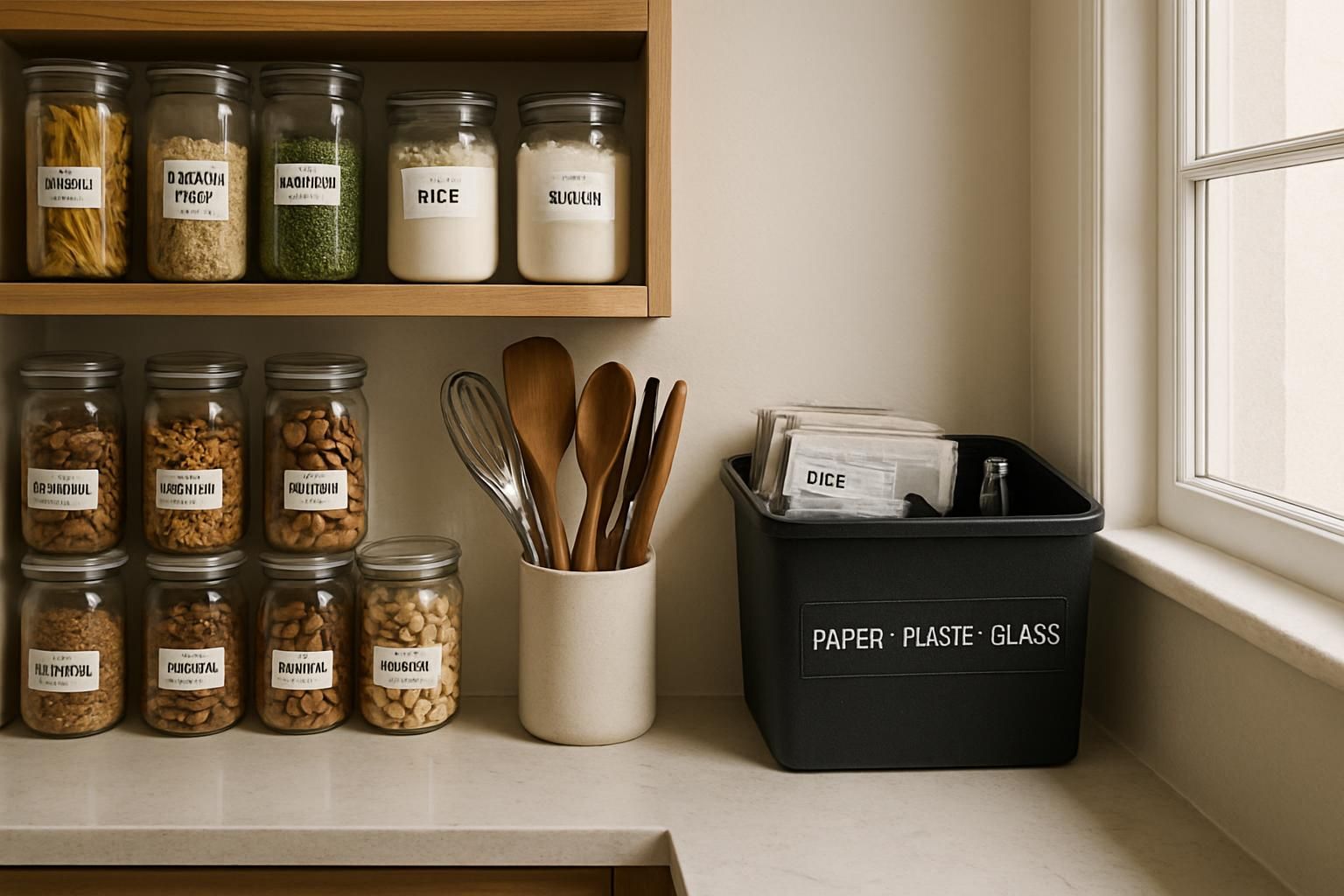
Highly organized people keep mess from growing in the first place. Their tidy home habits are simple and repeatable, like little autopilots that reset rooms throughout the day.
Tidy Up as You Go
Wipe counters after meals and gather paper clutter at night. Ask kids to put toys away before dinner to keep walkways clear. Straighten bathroom mirrors and hang towels after each use.
Reset seating areas with a quick cushion fluff. Drop keys, wallets, and chargers in the same tray at night for calmer mornings. Hang jackets right away near the door. A made bed sets the tone for the entire room.
Create a Daily and Weekly Cleaning Routine
Quick daily tasks, such as making beds and wiping kitchen counters, take under 15 minutes. A simple checklist guides the family through bedroom cleaning, mirror cleaning, and sorting paper clutter. Keep supplies easy to grab so momentum is never lost.
Declutter and Organize Regularly
Decluttering is the other half of the routine. Spend 15 to 20 minutes each week on paper clutter, junk drawers, or a closet shelf. Toys, mail, and laundry multiply quickly, so short sprints matter.
An organized kitchen cuts meal prep time and morning stress. Tackle one small zone at a time to avoid marathon sessions. Research ties lower clutter levels to less anxiety and more happiness at home. Turn tricky tasks into team efforts, like mirror cleaning or bagging clothes for donation.
Sample Cleaning Schedule and Checklist: Set a daily process by making your bed and wiping kitchen counters. Try this weekly plan: clean bathroom mirrors on Monday, dust on Tuesday, vacuum on Wednesday, mop floors on Thursday, and tidy up paper clutter on Friday.
Tips for Efficient Home Cleaning

Smart tools and simple systems make cleaning faster. Many families sync tasks in a shared app, which turns kitchen cleaning and bedroom cleaning into quick team routines.
Focus on High-Touch Areas
Light switches, doorknobs, fridge handles, and bathroom mirrors collect germs all day. Clean these first, then disinfect. Dirt blocks disinfectants from working well, so the order matters.
- Wipe, then spray an EPA-approved spray to kill lingering bacteria and viruses.
- Target kitchen counters where snacks land and hands pause.
- Hit drawer pulls and nightstand knobs during bedroom cleaning.
- Wash hands after cleaning, especially if anyone is sick at home.
Read labels to find contact time, the minutes needed for products to work. Gloves protect sensitive skin. Good habits here keep spirits up and infections down.
Use the Right Tools and Products
After the high-touch zones are done, grab gear that speeds up the rest. Rubber gloves protect hands from bleach or other chemicals. Microfiber cloths clean bathroom mirrors without streaks. Quality mops and vacuums remove dust, pollen, and crumbs from floors.
Choose all-purpose cleaners or glass sprays with the EPA Safer Choice mark for kitchen cleaning and bigger cleanouts. Use fabric-safe products on upholstery and follow laundry tags to prevent damage. Keep garbage bags within reach for quick paper clutter pickup.
Assign Tasks to Family Members
Give each family member a role during a weekly meeting. Kids can wipe bathroom mirrors or make beds. Parents can handle stove care and the spring cleaning checklist. Shared jobs teach responsibility and teamwork.
Build a chore chart with names and simple tasks. Rotate duties like vacuuming or pantry resets so the load stays fair. Couples who split dusting and floor care report less stress. A clear plan means no one person carries the whole house.
Environmental Benefits of Regular Cleaning
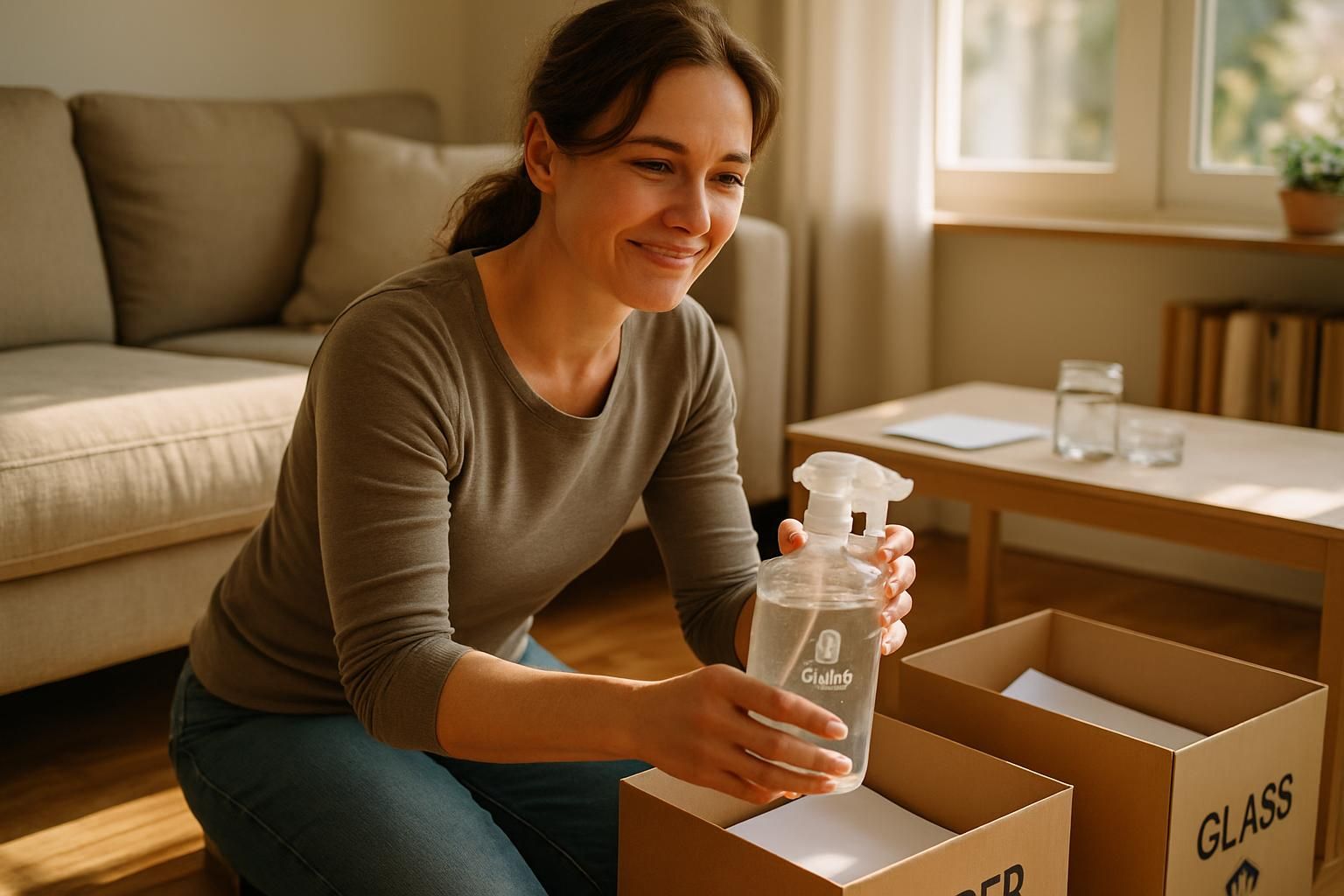
Greener cleaning choices help the home and the planet. Small steps, repeated often, reduce waste while keeping rooms fresh.
Reduces Waste Through Recycling and Donating
Recycling old magazines, plastic containers, and boxes from kitchen cleaning keeps trash cans lighter. Reused materials save trees, energy, and water. In 2018, recycling and composting kept more than 193 million metric tons of carbon dioxide out of the air.
Decluttering during bedroom cleaning or bathroom cabinet resets is a chance to donate clothes, books, or toys. Donation centers put those items back in use. Choosing sprays in recyclable bottles during spring cleaning also supports less waste.
Promotes Sustainable Cleaning Practices
Green cleaners made with biodegradable, non-toxic ingredients protect family health and the environment. Switching to EPA Safer Choice certified formulas cuts exposure to harsh chemicals. Concentrated products use less packaging, which helps reduce trash.
Efficient routines lower water use and keep the house clean with less effort. Families who recycle and donate as part of regular cleaning see long-term benefits for both their home and their community.
Conclusion

A steady cleaning schedule pays off day after day. Air feels cleaner, surfaces stay safer, and minds rest easier. Regular bedroom cleaning supports better sleep, and smart kitchen cleaning makes meals safer to prep.
Home organization keeps daily life smooth. Tasks finish faster when tools are ready and everyone pitches in. Clean spaces help families breathe better by reducing dust mites and other triggers. Lower stress follows, which makes relaxing after a long day much simpler.
Choosing eco-friendly products and recycling during chores supports health and the planet. Every sweep, wipe, and declutter session opens the door to calmer mornings and easier evenings, plus a house parents are proud to welcome guests into without a scramble.
FAQs
1. Why does regular home organization matter for my daily life?
A tidy space saves time and stress. You find your keys, wallet, or favorite mug without a wild goose chase every morning. Home organization also helps you spot what you need to fix or replace before it becomes a headache.
2. How can bedroom cleaning improve how I sleep?
Fresh sheets and dust-free surfaces help you breathe easier at night. A clean bedroom feels calm, making it easier to relax after a long day. No one wants to share their pillow with last week’s crumbs.
3. Does cleaning often really make my house safer?
Yes, it does more than just look good on the surface; picking up clutter reduces tripping hazards in hallways and bedrooms alike. Regular cleaning keeps germs from building up where your family eats and sleeps.
4. Can keeping things organized actually save me money?
Absolutely! When everything has its place thanks to smart home organization, you avoid buying duplicates of items lost in the mess like that third tape measure hiding under your bed since spring cleaning last year.
References
- https://www.rush.edu/news/health-benefits-cleaning
- https://www.wecleanhomes.co.uk/6-reasons-why-cleaning-your-home-is-important (2022-09-25)
- https://www.thecleaningauthority.com/blog/healthy-living/the-mental-health-benefits-of-a-clean-home/
- https://cleaningfairiesva.com/house-cleaning-benefits/
- https://www.healthline.com/health/healthy-home-guide (2025-07-21)
- https://www.britlincleaning.com/services/the-health-benefits-of-a-clean-home/ (2024-08-16)
- https://www.redfin.com/blog/benefits-of-a-clean-home/ (2025-03-25)
- https://sandiagreenclean.com/keeping-your-home-clean-can-boost-your-mental-health/ (2025-01-16)
- https://www.cdc.gov/hygiene/about/when-and-how-to-clean-and-disinfect-your-home.html (2025-01-31)
- https://natran.com/the-relationship-between-home-cleanliness-and-pest-infestations/
- https://maservicesgroup.com.au/pest-control/the-importance-of-regular-cleaning-in-preventing-pest-infestations/ (2024-09-16)
- https://www.maids.com/blog/benefits-of-regularly-scheduled-cleaning/ (2025-04-30)
- https://adebtfreestressfreelife.com/12-habits-of-people-who-always-have-a-clean-home/ (2025-02-20)
- https://www.mollymaid.com/cleaning-tips/schedules-charts-and-checklists/daily-cleaning-checklist/
- https://extension.usu.edu/mentalhealth/articles/the-mental-benefits-of-decluttering
- https://blog.myclean.com/how-often-to-clean-high-touch-surfaces-at-home-a-simple-guide/
- https://maidsalamode.com/who-do-household-chores-split/ (2019-12-10)
- https://www.epa.gov/recycle/recycling-basics-and-benefits
- https://www.epa.gov/greenerproducts/identifying-greener-cleaning-products



